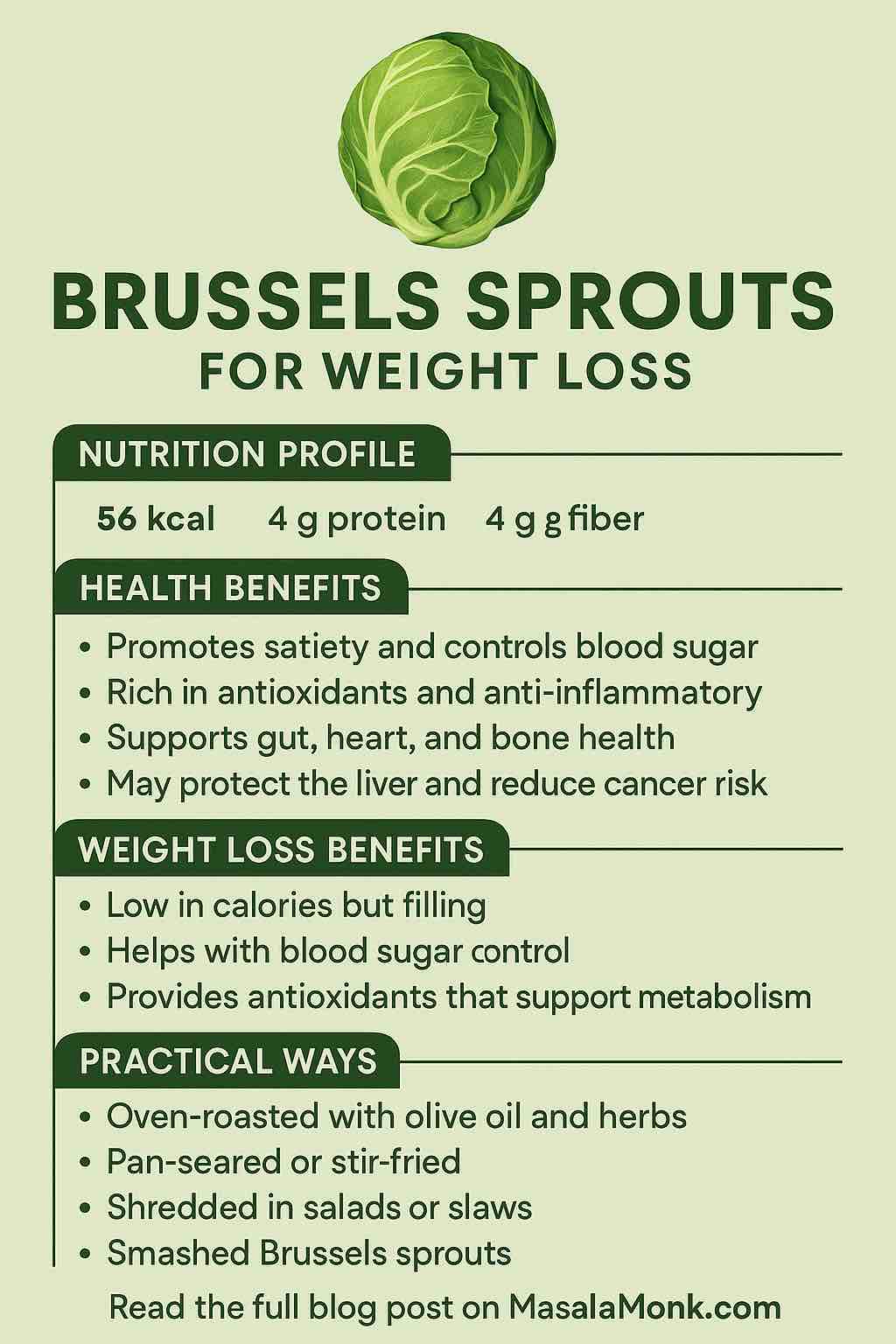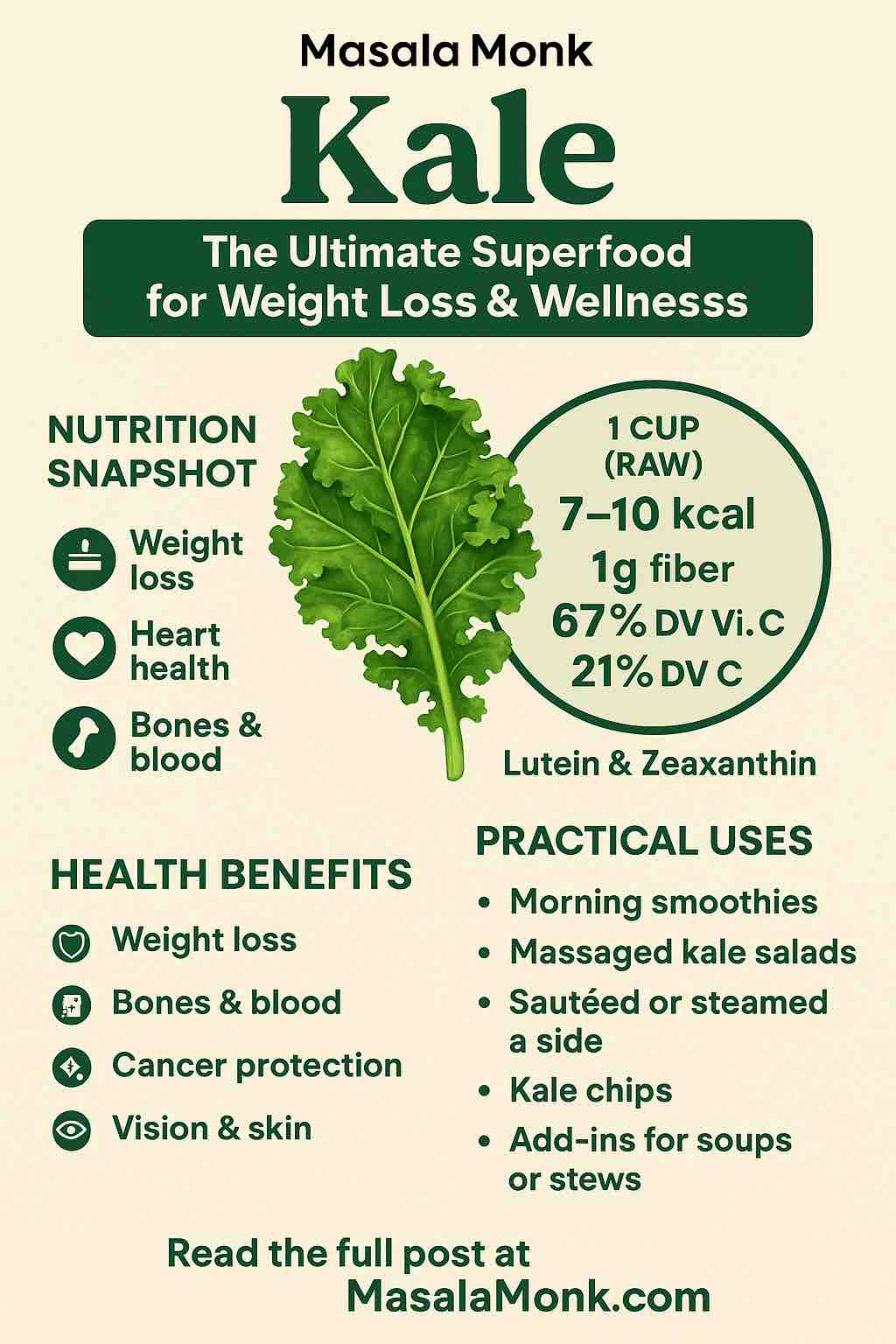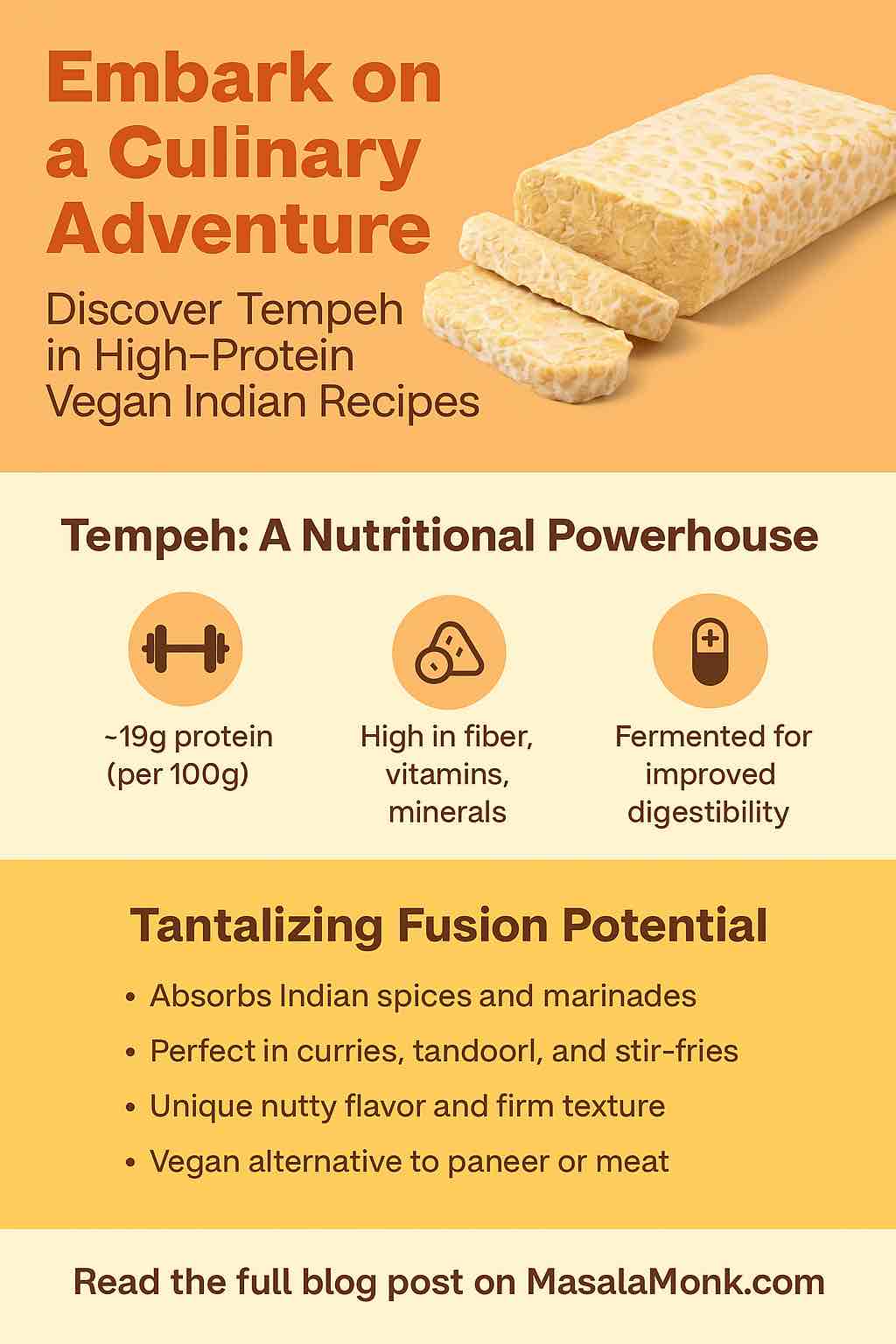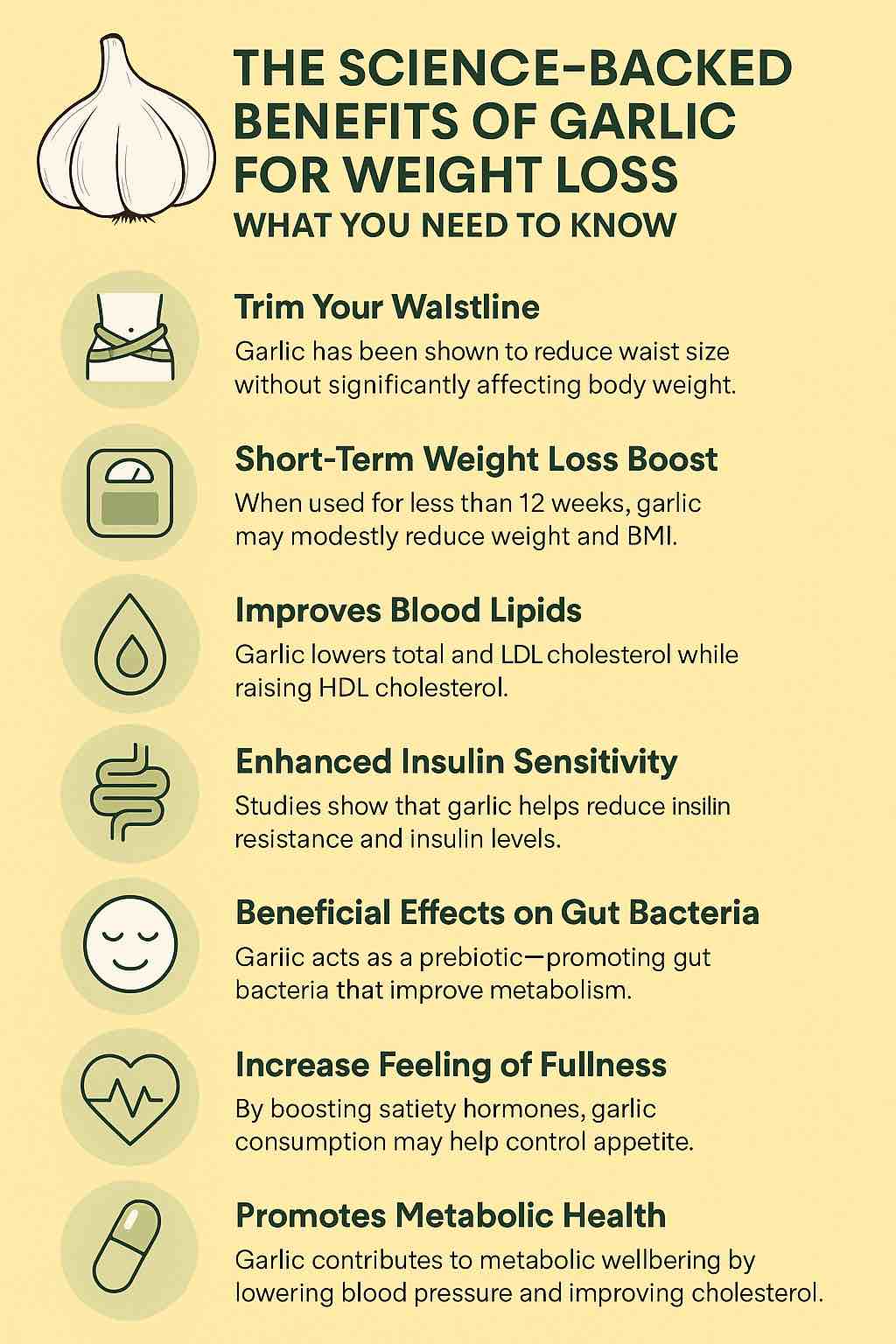
Brussels sprouts have long been misunderstood—often cast aside as the soggy, bitter vegetable of childhood dinners. But in recent years, they’ve staged a full-on comeback—and for good reason. These tiny cabbages are nutrition-packed, versatile, and surprisingly effective when it comes to weight loss.
If you’re trying to eat healthier, shed a few pounds, or simply diversify your plate with superfoods, Brussels sprouts deserve a top spot on your grocery list.
Let’s explore the science-backed benefits, nutritional value, and five realistic, flavorful ways to add Brussels sprouts to your weight-loss routine.
🧬 The Nutritional Profile: Tiny Cabbages, Big Power
Brussels sprouts are a member of the cruciferous vegetable family—cousins to broccoli, kale, and cauliflower. Don’t let their size fool you; they are nutrient-dense with minimal calories.
✅ Per 1 cup cooked (~156 g):
- Calories: 56 kcal
- Protein: 4 g
- Fiber: 4 g
- Carbohydrates: 11 g (complex)
- Fat: 0.8 g
- Vitamin C: 97 mg (over 100% DV)
- Vitamin K: 219 µg (over 180% DV)
- Folate: 94 µg
- Antioxidants: Sulforaphane, kaempferol
- Minerals: Iron, potassium, manganese
TL;DR: Brussels sprouts offer the rare combination of low calories, high fiber, and dense micronutrients—ideal for any weight loss or wellness plan.
💪 Health Benefits (Backed by Science)
1. Promotes Satiety and Reduces Cravings
High fiber means slower digestion, which keeps you full longer. This satiety reduces snacking and overeating—two key drivers of unwanted weight gain.
A recent review (The Lancet, 2025) found diets rich in fiber helped individuals lose an average of 1.9 kg over 6 months—even without aggressive calorie restriction.
2. Stabilizes Blood Sugar
The fiber and antioxidant sulforaphane in Brussels sprouts help slow glucose absorption and improve insulin sensitivity, reducing cravings and promoting fat metabolism.
3. Supports Gut Health
The prebiotic fiber in Brussels sprouts feeds good gut bacteria, which are now linked to better metabolic health, inflammation control, and even mood regulation.
4. Detox & Inflammation Reduction
Compounds like glucosinolates and kaempferol help neutralize toxins and reduce inflammation—a hidden contributor to weight gain and chronic disease.
5. Liver & Bone Support
Vitamin K enhances calcium utilization, promoting bone strength. Sulforaphane may protect against non-alcoholic fatty liver disease, common in overweight individuals.
⚖️ Brussels Sprouts & Weight Loss: The Perfect Match
Weight loss is about creating a sustainable calorie deficit—without feeling deprived. Brussels sprouts hit the sweet spot:
- High-volume, low-calorie: A large portion fills you up for <60 calories.
- Gut & blood sugar friendly: Helps curb cravings.
- Supports long-term health: Keeps you healthy while you lose fat—not just skinny.
🍽️ 5 Practical, Tasty Ways to Use Brussels Sprouts for Weight Loss
1. Crispy Roasted Brussels Sprouts (The Crowd-Pleaser)
Why it works: Roasting enhances flavor and creates a satisfying crunch—perfect for clean eating and low-calorie snacking.
How to make:
- Halve sprouts and toss with olive oil, garlic, sea salt, and pepper.
- Roast at 425°F (220°C) for 25 minutes until edges are crispy.
- Optional: Add balsamic drizzle or a squeeze of lemon post-roast.
2. Brussels Sprouts Slaw (Crunch Without the Guilt)
Why it works: Eating them raw preserves nutrients and adds texture. This can be a base or side for almost any meal.
How to make:
- Shred raw sprouts in a food processor or with a knife.
- Mix with Greek yogurt, mustard, a dash of honey, and apple cider vinegar.
- Add sunflower seeds or a few chopped almonds for healthy fat.
3. Sautéed Sprouts with Garlic and Chili (Quick & Spicy Side)
Why it works: Fast, flavorful, and oil-controlled—great for weeknight meals.
How to make:
- Slice thinly or halve sprouts.
- Sauté with olive oil, garlic, chili flakes, and a splash of lemon.
- Serve alongside grilled chicken, salmon, or lentils.
4. Smashed Brussels Sprouts (Crispy and Fun!)
Why it works: Combines boiling and roasting for an ultra-crispy finish with minimal oil.
How to make:
- Boil sprouts for 10 minutes. Drain and flatten with a spoon.
- Brush with olive oil, sprinkle with smoked paprika or cumin.
- Roast at 425°F for 20 minutes until golden.
5. Brussels Sprouts & Quinoa Bowl (Power Lunch)
Why it works: Combines plant protein, fiber, and good fats in a balanced meal.
How to make:
- Roast Brussels sprouts. Combine with cooked quinoa, chickpeas, spinach.
- Dress with tahini-lemon sauce or a vinaigrette.
- Add pumpkin seeds or avocado for richness.
🔁 Keep It Sustainable
Here’s how to keep Brussels sprouts in your weekly rotation without getting bored:
- Mix cooking styles: roasted, raw, stir-fried, or steamed.
- Pair with different proteins (tofu, turkey, legumes).
- Add seasonal ingredients (apple, pomegranate, citrus).
- Use them in meal prep: they reheat well!
⚠️ A Few Cautions
- Gas & bloating: Some may experience mild bloating due to raffinose. Introduce slowly.
- Vitamin K interaction: Those on blood thinners should monitor intake (consult your doctor).
- Overcooking ruins everything: Keep them vibrant, not mushy.
🧾 Final Thoughts
Brussels sprouts aren’t just another green vegetable—they’re a true nutritional powerhouse. Packed with fiber, antioxidants, and micronutrients, they’re a secret weapon in healthy weight management.
More importantly, they’re delicious when cooked right. Whether roasted to golden perfection, shaved raw into a zesty slaw, or tossed into a protein bowl, they can upgrade your meals while supporting your weight goals.
Start simple: Add Brussels sprouts 2–3 times a week, mix up cooking styles, and enjoy the satisfying fullness they bring.
FAQs
❓ 1. Are Brussels sprouts good for weight loss?
✅ Yes. They’re low in calories and high in fiber, which promotes fullness, stabilizes blood sugar, and supports fat metabolism—all essential for sustainable weight loss.
❓ 2. How often should I eat Brussels sprouts to see benefits?
👉 Aim for 2–4 times per week, with 1 cup cooked per serving. Consistent inclusion in a varied diet amplifies benefits like satiety, gut health, and inflammation reduction.
❓ 3. Can I eat Brussels sprouts raw?
Yes, you can! Shaved or shredded raw Brussels sprouts work great in slaws and salads. They’re crisp, fresh, and retain more vitamin C than cooked versions.
❓ 4. What is the best way to cook Brussels sprouts for weight loss?
Roasting or sautéing with minimal oil is ideal. These methods enhance flavor without adding excess calories. Steaming works too, but can be bland without seasoning.
❓ 5. Do Brussels sprouts cause gas or bloating?
They can, due to their fiber and raffinose content. Start with small portions and increase gradually. Cooking them thoroughly also helps reduce digestive discomfort.
❓ 6. Are frozen Brussels sprouts as healthy as fresh ones?
Generally, yes. Frozen sprouts are picked at peak ripeness and retain most nutrients. Just avoid pre-seasoned versions with added salt or fat.
❓ 7. How many calories are in 1 cup of cooked Brussels sprouts?
About 56 calories per cup. This makes them an ideal high-volume, low-calorie food for weight loss.
❓ 8. Can Brussels sprouts help reduce belly fat?
Not directly—but by reducing overall calorie intake, improving insulin sensitivity, and supporting metabolism, they can contribute to total fat loss, including belly fat.
❓ 9. Are Brussels sprouts keto-friendly?
Yes. They’re low in net carbs (~5 g per 100 g cooked), making them suitable for most low-carb and ketogenic diets.
❓ 10. What other vegetables pair well with Brussels sprouts?
Great pairings include sweet potatoes, carrots, kale, spinach, cauliflower, and onions. They complement both flavor and nutrient profiles in mixed dishes.













